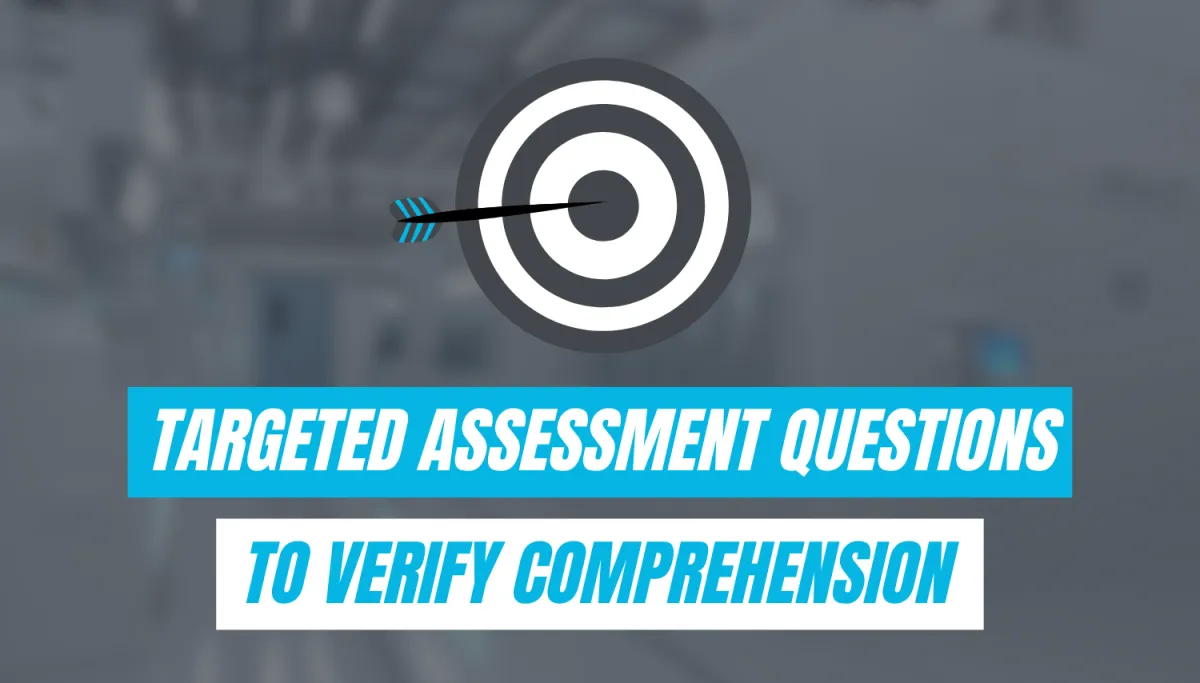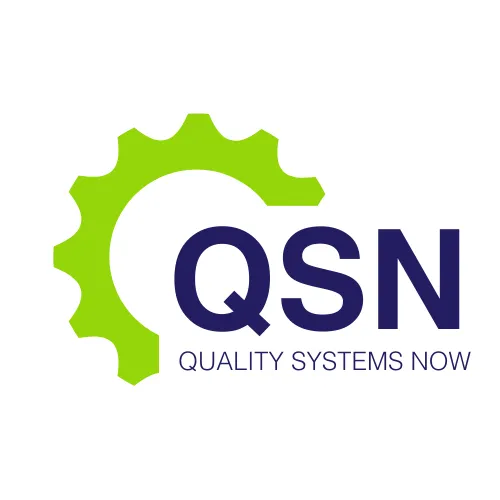NEWS

Targeted Assessment Questions to Verify Comprehension
Regulatory bodies including the TGA, FDA, and EMA require not only documented training but verifiable comprehension. This is particularly relevant in the context of Good Manufacturing Practice (GMP) environments, where the cost of human error can lead to batch failure, product recalls, or even patient harm.
At QSN Academy we design our compliance training programs to go beyond passive information delivery. A critical component of our approach is the use of targeted assessment questions—tools designed to confirm that learners not only attended a course but understood and can apply the content in their daily responsibilities. This article explores the rationale, design, and implementation of targeted assessments and why they are essential for your organisation’s compliance outcomes.
Regulatory Expectations for Assessing Comprehension
Global regulatory agencies emphasise that training must be effective, which means it must result in a demonstrable understanding of required procedures and responsibilities. For example, PIC/S PE009-17 (Annex 1 of the EU GMP Guide, adopted by TGA) states that training must be assessed for effectiveness. Similarly, the U.S. FDA’s guidance on data integrity and cGMP compliance states that training should be evaluated and retraining provided when comprehension is inadequate.
The audit-ready training system must be able to answer the question: “How do you know your people understood what they were trained on?”
The Role of Targeted Assessment in GMP Training
Assessment is not merely a formality. In high-risk, precision-based industries, knowledge gaps lead to errors—often costly and sometimes dangerous. Without assessments, organisations operate on the assumption that learning has occurred. But with targeted assessments, organisations validate comprehension, identify risks early, and apply remediation where needed.
At QSN Academy, we design assessments not to be generic quizzes, but as intentional tools that:
Reflect the core learning objectives of each module
Reinforce the critical thinking required in a GMP environment
Evaluate both factual recall and applied knowledge
Align with site-specific SOPs and workflows
Designing Effective Assessment Questions
Writing meaningful assessment questions requires more than rephrasing course content. Each question must be strategically aligned with the purpose of the training and the learner’s real-world responsibilities. Our instructional designers and GMP specialists follow a structured methodology that includes:
1. Alignment with Learning Objectives
Each training module is built around defined learning outcomes. Assessment questions are written to map directly to these outcomes, ensuring alignment with what the learner must know or be able to do after training.
For example, if the objective is “Apply GDP principles to batch documentation,” the assessment may include a scenario requiring the learner to identify and correct documentation errors—not just define GDP.
2. Application of Bloom’s Taxonomy
QSN Academy incorporates Bloom’s Taxonomy to design questions that test higher-order thinking. This ensures that learners move beyond rote memorisation to:
Understand (explain concepts in their own words)
Apply (use information in new situations)
Analyse (differentiate between options)
Evaluate (make judgments based on criteria)
Create (propose compliant alternatives)
This is particularly valuable for training on deviation handling, risk assessments, CAPA generation, or root cause analysis.
3. Realistic Scenarios
We utilise case-based assessment formats, particularly for more advanced training. These are drawn from real-world GMP deviations, inspection findings, or client-specific situations. Learners are asked to read a scenario and determine the most compliant course of action or identify non-conformances.
This contextual approach strengthens retention, enhances engagement, and mirrors the complexity of real-life decision-making in regulated environments.
4. Multiple Question Types
QSN Academy employs a range of assessment formats, including:
Multiple choice (single best answer and “select all that apply”)
True/false with rationale prompts
Scenario-based branching questions
Short answer or free-text reflection questions
Matching and sequencing tasks for procedural understanding
Each format is selected based on the competency being assessed.
Embedding Assessment into Your Learning Management System (LMS)
For organisations using Learning Management Systems (LMS), assessment integration is essential for tracking training effectiveness. QSN Academy supports clients in embedding assessments into LMS platforms, ensuring:
Automated scoring and pass/fail criteria
Time tracking and retake protocols
Integration with training matrices and individual learning records
Analytics for identifying at-risk learners or recurring knowledge gaps
Additionally, question banks can be rotated or randomised to reduce rote memorisation and enhance assessment integrity.
Assessment as a Tool for Continuous Improvement
Targeted assessment questions do more than just verify learning—they also help organisations identify systemic issues. If multiple team members consistently miss questions related to SOP execution or data integrity, it could indicate:
Ambiguity in procedures
Poorly written SOPs
Inadequate training delivery
Misalignment between training and actual workflows
These insights can inform procedural improvements, retraining, and root cause analysis of deviations, ultimately contributing to stronger quality culture and compliance posture.
Remediation and Retraining Strategies
When assessment results indicate that a learner has not met the required level of understanding, QSN Academy provides support for remediation strategies such as:
Review sessions with SMEs
Supplemental microlearning modules
One-on-one coaching
Repeat assessments with explanatory feedback
Our system ensures that no training is considered complete until the learner has achieved the desired level of competency. This is critical for ensuring fitness-for-duty in GMP environments.
Audit-Ready Documentation of Competency
An effective assessment strategy provides traceable, auditable proof of training effectiveness. QSN Academy ensures that assessment records include:
Individual scores and attempt histories
Question-by-question analytics
Evidence of remedial actions taken
Certification or sign-off integrated with your compliance framework
This ensures full traceability and prepares your organisation for regulatory inspections or internal audits.
Conclusion
In highly regulated industries, effective training is not complete without evidence of comprehension. Targeted assessment questions are not just compliance requirements—they are essential tools for risk mitigation, workforce readiness, and quality assurance.
At QSN Academy, we help clients develop and deliver assessments that go beyond ticking boxes. Whether through course licensing, custom content, or end-to-end strategy development, our team works closely with yours to ensure that every employee is not only trained but demonstrably competent.
To learn more about how we can support your training programs with advanced assessment strategies, visit www.qsnacademy.com.au or contact us to schedule a consultation. Let’s ensure your team is trained, tested, and truly compliant.
